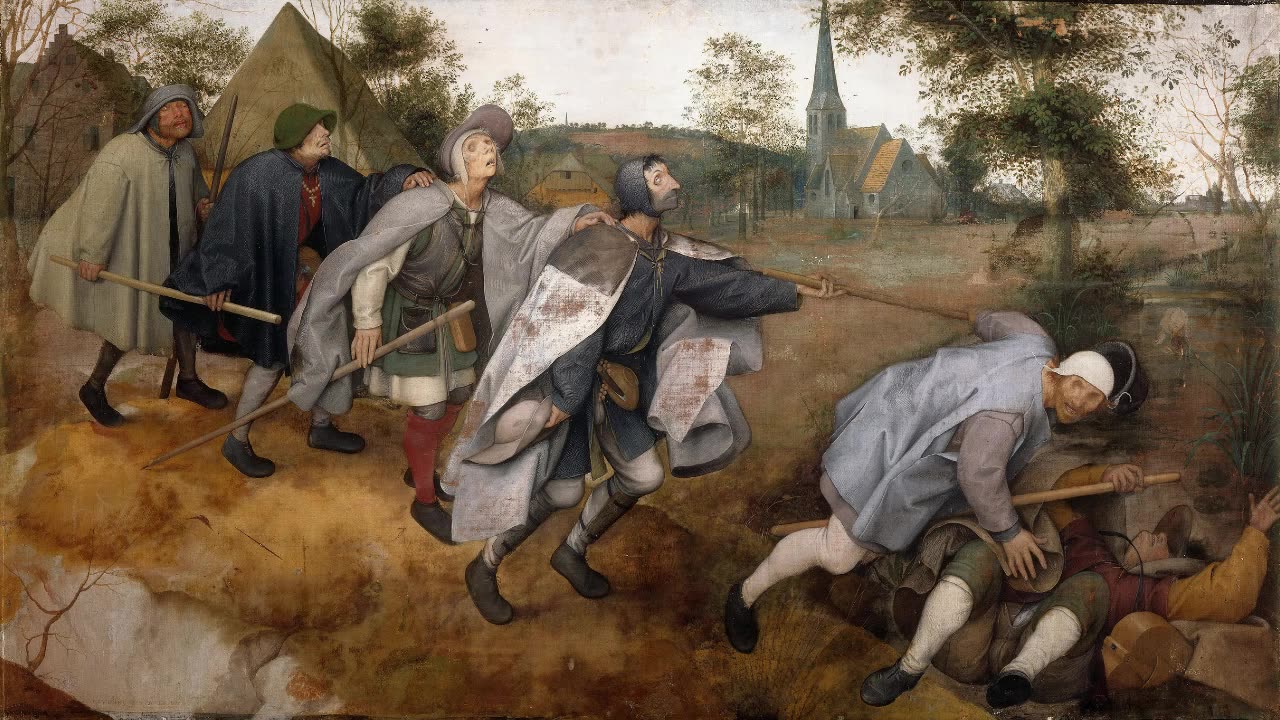Premium Only Content

Friday Gospel: Parable of the Blind leading the Blind, & Parable of the Speck and the Log
Friday Gospel
September 12, 2025
Parable of the Blind leading the Blind, & Parable of the Speck and the Log
Gospel Luke 6:39-42
Jesus told his disciples a parable:
“Can a blind person guide a blind person?
Will not both fall into a pit?
No disciple is superior to the teacher;
but when fully trained,
every disciple will be like his teacher.
Why do you notice the splinter in your brother’s eye,
but do not perceive the wooden beam in your own?
How can you say to your brother,
‘Brother, let me remove that splinter in your eye,’
when you do not even notice the wooden beam in your own eye?
You hypocrite! Remove the wooden beam from your eye first;
then you will see clearly
to remove the splinter in your brother’s eye.”
Gospel Reflection:
The passage of Luke 6:39-42 delivers a powerful, combined lesson on humility, self-reflection, and responsible guidance. It centers on the core idea that before we can help or judge others, we must first confront our own spiritual state and shortcomings.
The Parable of the Blind Leading the Blind
This parable serves as a critical warning about spiritual guidance and the attitude of a disciple. The first lesson is to recognize your role as a student, not a master. Believing you have all the answers and don't need correction is a dangerous form of spiritual blindness. A true disciple is a perpetual learner. The second lesson is to choose your teachers wisely. A godly teacher will always point you to God and the Scriptures, not to themselves, and will be open to being challenged. The danger lies in following spiritually blind guides, which will only lead both parties to disaster.
The Parable of the Speck and the Log
This parable focuses on the hypocrisy of judging others. Jesus uses the exaggerated image of someone trying to remove a tiny "speck" from a neighbor's eye while a giant "log" is in their own. The central message is to prioritize your own personal holiness. You must deal with your own major faults before attempting to correct the minor ones in others. This principle extends beyond judging sin; it highlights our tendency to become preoccupied with trivial, worldly concerns (e.g., politics, physical ailments) while neglecting the significant spiritual deficiencies in our own souls. The ultimate lesson is to look inward first and address your own sin, as this is the only way to gain the clarity and humility needed to genuinely help others.
-
 1:13:06
1:13:06
The Rubin Report
2 hours agoPress Gasps When Told Trump’s Brutal Plan for Layoff of Gov’t Workers with Dinesh D'Souza
36.7K12 -
 1:01:54
1:01:54
Dr. Eric Berg
4 days agoThe Dr. Berg Show LIVE October 3, 2025
12.6K2 -
 LIVE
LIVE
LFA TV
14 hours agoLIVE & BREAKING NEWS! | FRIDAY 10/3/25
3,647 watching -
 DVR
DVR
Grant Stinchfield
11 hours ago $0.23 earnedThe War Machine Strikes Again—Elites Push World to the Brink
3.65K -
 LIVE
LIVE
Trumpet Daily
1 hour agoTrumpet Daily LIVE | Oct. 3, 2025
336 watching -
 1:01:09
1:01:09
VINCE
3 hours agoMadness In Portland - Conservatives Arrested? | Episode 139 - 10/03/25
164K171 -
 2:14:43
2:14:43
Nikko Ortiz
2 hours agoAmerica Whats Going On...
25.6K2 -
 1:53:57
1:53:57
Badlands Media
14 hours agoBadlands Daily: October 3, 2025 - The Deep State Purge, Pelosi’s Lies, and Trump’s Unprecedented Opportunity
58.3K8 -
 1:30:58
1:30:58
Caleb Hammer
3 hours agoNo F*cking Way | Financial Audit
16.7K -
 1:26:33
1:26:33
The Big Mig™
4 hours agoIran The Great Game w/ Igor Lopatonok
13.1K7
